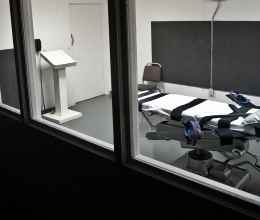
The ACLU, the ACLU of Idaho, and the global law firm Hogan Lovells filed a lawsuit in 2015 against the State of Idaho over its defective public defense system. That litigation is ongoing today.
When Idaho passed HB 504 in early 2016, it created the Idaho Public Defense Commission (PDC). The PDC is tasked with creating standards to guide the work of defending attorneys across the state and to ensure constitutional levels of public defense service to their indigent clients.
You can also review ACLU talking points on PDC through our 2017 Public Defense Commission Rules guide.